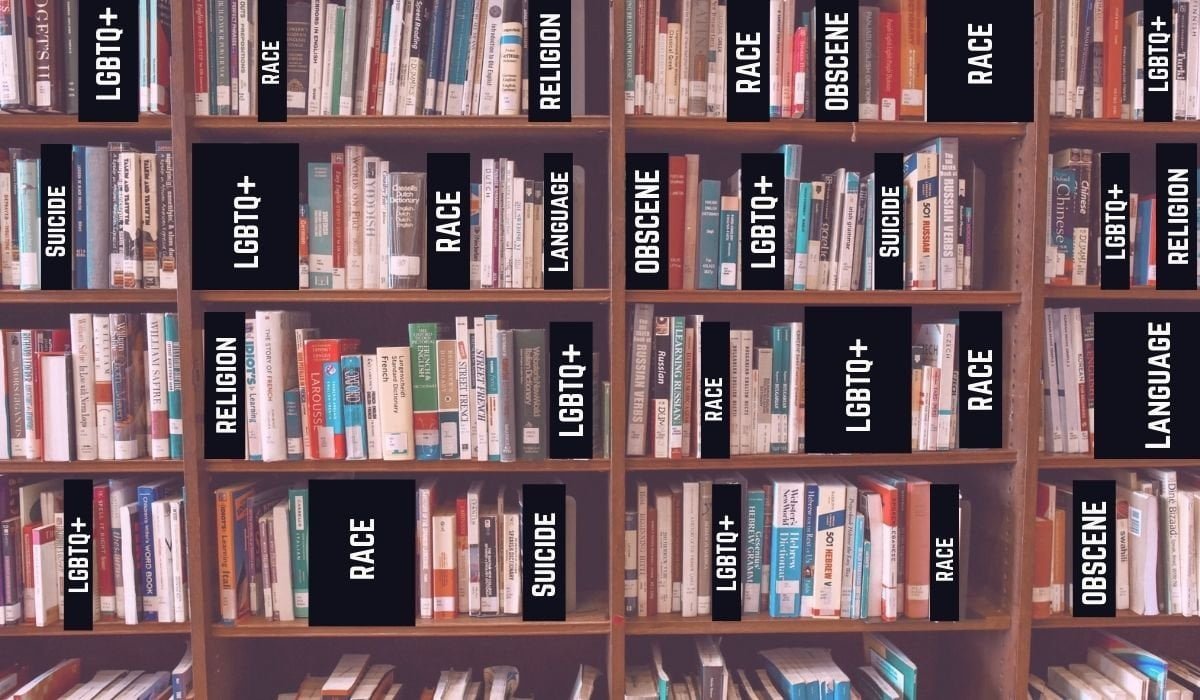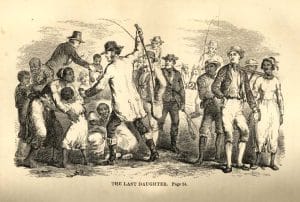While listening to last night’s Central Bucks School District policy committee meeting I was shocked by the school board’s right-wing majority’s lack of understanding of the policy they “wrote,” or largely copied and pasted from the Texas Education Agency, and are championing.
One exchange in particular really showcased this obtuseness. School Board President Dana Hunter, in a failed attempt to be clever, tried to take a shot at Philadelphia Inquirer reporter Maddie Hanna (though not by name) for her article “Proposed Central Bucks library policy targeting ‘sexualized content’ spurs worries about sweeping book removal.”
Hunter quipped, “It would be nice if they actually read the policy before they report it.”
The only thing I commend Hunter for in this statement is her use of the gender neutral pronoun they. Otherwise, it is completely unsupported.
This was in reference to criticisms in the article, and in public comment, about how the policy could potentially disappear classics such as “Romeo and Juliet” or a “Tale of Two Cities” from library shelves.
Hunter then went on to quote from draft library policy 109.2, “A wide range of recognized classics should be maintained in each library.”
She was trying to use the “fake” narrative employed by the right-wing school board majority and Superintendent Dr. Abram Lucabaugh in their attempts to dismiss public criticism of the direction they are taking the school district, especially in regard to the rights of LGBTQ students and families.
“I can see why the questions came up,” interjected board member Karen Smith, “because if you look at the section ‘Avoiding Inappropriate Material’ and then apply it to some of these books … you do have an issue.”
Smith is absolutely right, and Hunter is wrong.
That’s why the ACLU of Pennsylvania issued a “censorship alert” this week in response to the policy and the meeting.
“The language we have here is both vague and overbroad. This would allow the school district to remove books in an unconstitutional fashion, books that are clearly protected by the First Amendment,” said ACLU of Pennsylvania Legal Director Witold Walczak.
The Education Law Center of Pennsylvania also chimed in, writing a letter to the board stating that the policy’s “failure to require consideration of a book in its entirety and instead direct removal based on an excerpt of alleged vague ‘sexualized content’ reflects the policy’s impermissible targeting of a viewpoint that is disliked by certain members of the Board who wish to proscribe ‘what shall be orthodox’ and available to students in the library.”
It is why the American Library Association’s Office of Intellectual Freedom Director Deborah Caldwell-Stone warned that the very vague language around “sexualized” content creates the conditions where books will be unjustly excluded.
And it’s why the Pennsylvania School Library Association opposes this policy.
All of these people read the policy and are experts in either the First Amendment and/or education policy, unlike the school board members who drafted and now support it.
Now, certain school board members might suggest they have discretion they can use to avoid overreach. But that’s not what you want.
“If you’ve got vague terms it gives unlimited discretion to the would-be censors to do whatever they want and the danger there is that they can exercise that in an arbitrary or discriminatory fashion,” said the ACLU’s Walczak.
What’s the rush?
Smith was the lone voice of dissent on the actual school board last night because it was decided by the right-wing majority that expediting this meeting even though Dr. Tabitha Dell’Angelo and Dr. Mariam Mahmud, both critics of the policy, couldn’t make the last minute meeting due to prior commitments, trumped having a more inclusive, well-rounded discussion.
Warwick’s Theresa Brown, a mother to two students in the district (with one more one the way), told me she didn’t understand why there was such a rush.
“It was so confusing to everyone when the board decided to hold an emergency policy meeting tonight to push forward their book policy,” she said. “They still went through with the meeting even when they knew two board members were not able to attend. Two voices that I am sure they didn’t want to hear.”
Well that’s just it. The right-wing majority isn’t really concerned about “consensus.” And they’re not really concerned with what actual experts think.
Or facts for that matter.
Brown was encouraged by the large crowd who showed up to support students’ rights, the First Amendment, and the idea that CBSD schools should have robust, uncensored libraries.
“On a positive note, so many amazing Central Bucks teachers and librarians came out tonight to speak about the book policy that the board is trying to pass. All I kept thinking was that these are the people the board should be listening to, not the loud minority that are trying to push their views onto other people,” she added.
Colleen Graney, a librarian at Central Bucks West High School and resident of Doylestown Borough, is one of the librarians they should be listening to. She spoke out clearly and unequivocally stating her opposition to this policy.
“The new library policy 109.2 will restrict our ability to support our faculty and inspire and serve our students,” said Graney, as part of her public comments. “This policy as written will prevent librarians from adding many new and relevant books to our school libraries thereby restricting student access to the very materials our own professional staff recommends.”
But it doesn’t matter.
Not to them.
Instead, the people they are taking their cues from are “Woke PA” disciples preaching their gospel of hate and moral panic, accusing librarians and teachers of “grooming” and cherry picking certain passages to suggest somehow that a book like Toni Morrison’s “The Bluest Eye” is “pornographic.”
A Climate of Fear
Jill Talarico, a 26-year Central Bucks School District librarian and teacher, resigned in January. She loved the kids but was unhappy with the job because of the lack of effective leadership and integrity plaguing the district. This policy could be seen as a continuation of that.
“Last night’s meeting showed that it is very, very clear that it is not what the community wants,” she said. “They sent a clear message that politically motivated agenda in education are not welcome.”
Talarico, who went to the meeting, is dismayed that politics are going to punish the kids and diminish their educational experience. She also worried about the chilling effect this policy will have on educators and librarians.
“I think they’re going to be afraid to share books,” she added. “They are not going to be able to serve all of their students with all of their diverse needs.”
It’s already happening.
The right-wing school board members are looking for someone to blame, frankly, for a problem that only exists in their eyes and the eyes of a few loud and extreme members of the community.
This creates a climate of fear where teachers, librarians, and staff do something the right-wing majority school board doesn’t like.
Board member Sharon Collopy made it clear that once they have their guidelines in place, if they determine that a potential new book is inappropriate “there will be accountability” and the “buck stops with someone.”
The way this policy is written and its vagueness puts too much power in the board’s hands and this will in fact lead to self-censorship by staff, the ACLU’s Walczak concurred.
“Another problem with vague laws is that people who need to enforce and apply them don’t really have sufficient guidance. But if you’re an employee worried about being disciplined you are going to overcorrect … that sort of censorial impulse is bad for free expression,” he said.
CB West librarian Graney provided the board with a real simple fix: just let the trained professionals do what they have been doing – which is applying criteria such as age suitability, connection to curriculum, and referencing recommendations and reviews.
I don’t think that is going to happen.
While there were a few concessions and changes made last night, this is still an “expressway to unconstitutional censorship,” as the ACLU calls it.
If this policy is passed, the buck stops with school board members who pushed it through when the district faces future lawsuits and its reputation is even further tainted.






